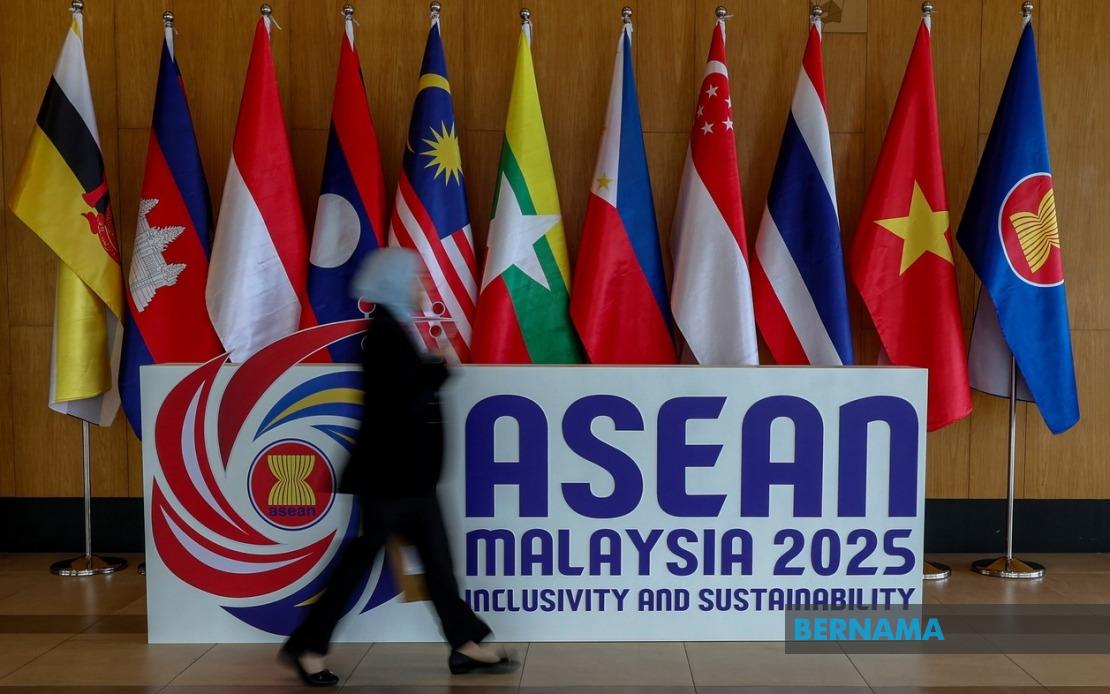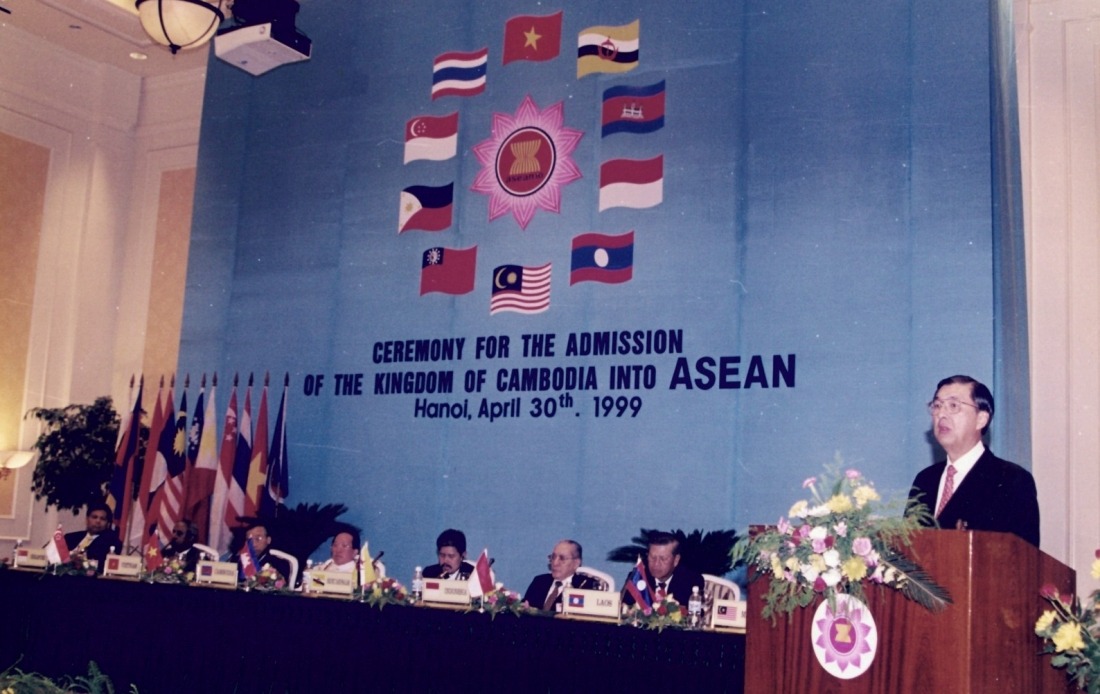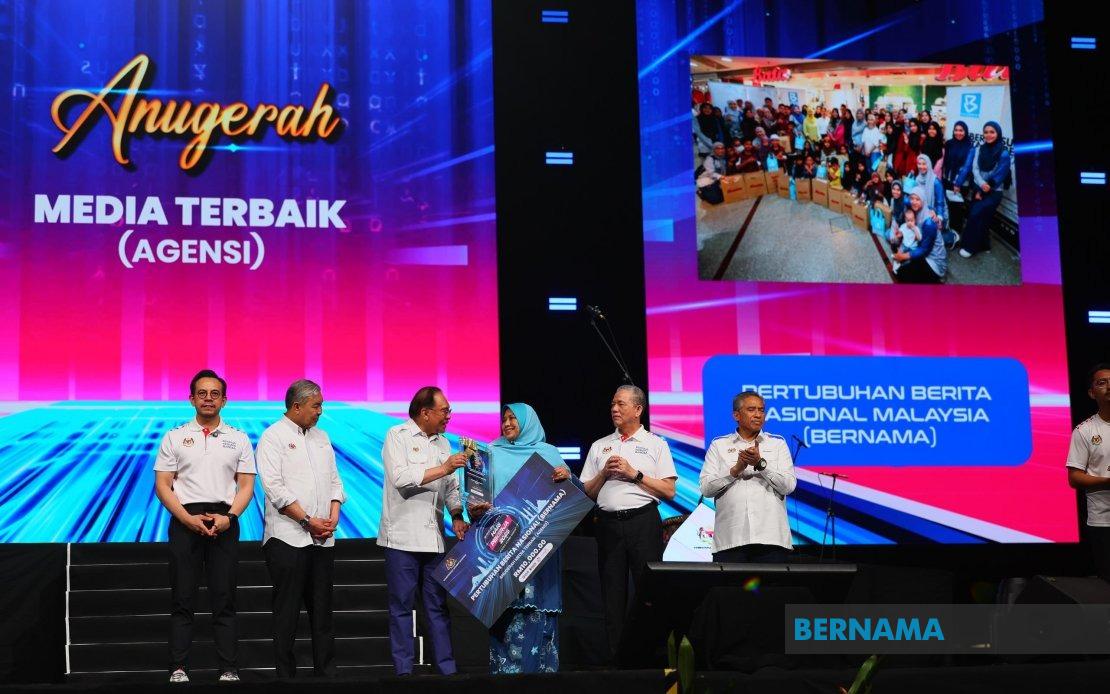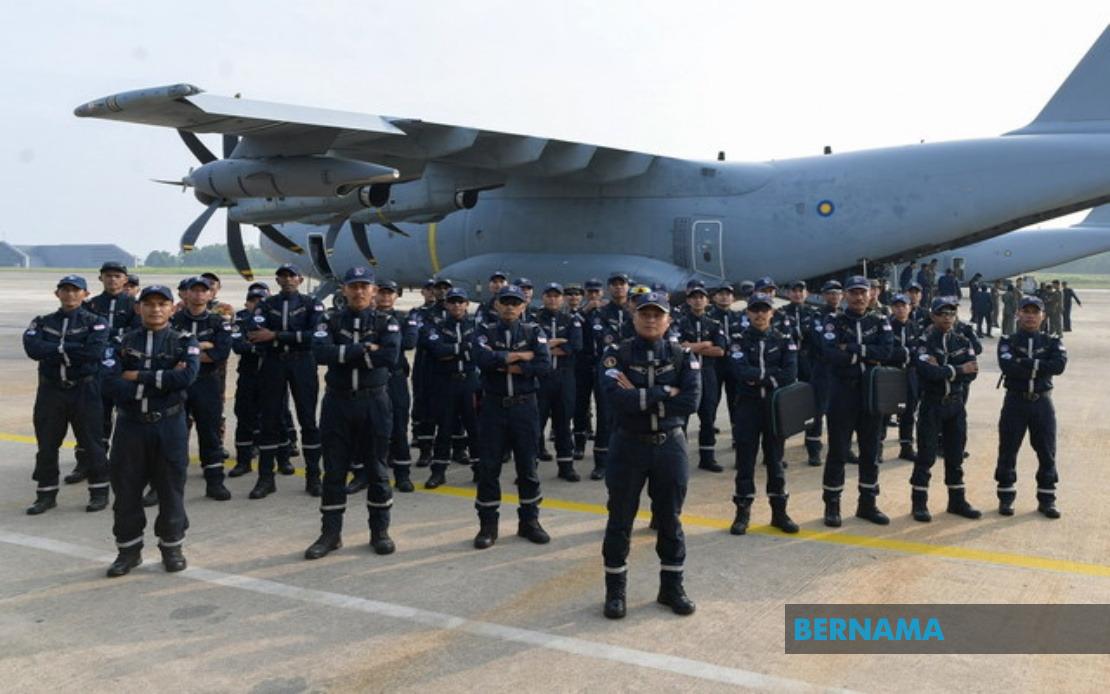PM ANWAR DISPLAYS ASTUTE POLITICAL ACUMEN AS ASEAN CHAIR IN NAVIGATING UNEXPECTED CHALLENGES CONFRONTING REGION

By Norsyafawati Ab Wahab and Rosemarie Khoo
KUALA LUMPUR, May 1 (Bernama) – Prime Minister Datuk Seri Anwar Ibrahim has displayed acute political acumen as chair of ASEAN in navigating challenges confronting the region, some of which no one would have guessed when he received the baton of the ASEAN chairmanship from Laos in October last year.
Foremost is America’s debilitating and unexpected tariffs which threw the global trading arena into disarray and markets into chaos, forcing some developed economies to take on a retaliatory and protective stance with many Global South nations distressed and unsure what to do next.
However, one good thing that stands out is Malaysia’s strong bilateral trade and long-term economic ties with the United States which includes its critical role in the global semiconductor supply chain.
These attributes coupled with Anwar’s persona in maintaining cordial ties with both friend and foe have positioned it advantageously in tariff negotiations and putting forward Southeast Asia’s economic interests as the regional group’s chair.
Economic growth and investment
Deputy vice-chancellor of Research, Community Networking and Industry, Selangor Islamic University, Dr Latifa Bibi Musafar Hameed concurs that Malaysia’s trade relationship with the US has remained robust since independence and continues to drive economic growth and investment.
From January to October 2024, Malaysia-US trade rose 29.1 per cent to RM264.28 billion, up from RM204.78 billion the previous year, while 1,321 projects worth US$39 billion (RM173 billion) have been implemented and are ready for management, reflecting strong investment ties with the US, she told Bernama.
“The strong bilateral relationship between Malaysia and the US plays a crucial role in facilitating tariff negotiations,” she said, alluding to American trade officials acknowledging Putrajaya’s strategic economic importance to Washington.
Against such a backdrop, it is clear then that Anwar’s approach has been consistent in urging member countries to avoid retaliation but be proactive in negotiating the import levies to protect their economic interests.
Analysts agree that Anwar’s long years of dealing with political challenges and difficulties have obviously benefitted ASEAN as his chairmanship led to Southeast Asia reaching consensus and emphasising on free trade and multilateralism against President Donald Trump’s debilitating tariffs imposed on 168 countries.
The tariffs have now been paused for 90 days for a majority of the countries with ASEAN countries including Malaysia involved in brisk negotiations to churn out better trade deals.
Strongly believing in ASEAN’s inner strength, the Prime Minister has pushed for greater intra-Asean trade and supply chain resilience as the antidote against disruptions to the world trading order. Experts reckon that this has bolstered Putrajaya’s position in discharging its duties as ASEAN chair against a backdrop of tough US import levies,
Negotiation and leverage
Geostrategist Prof Dr Azmi Hassan said Malaysia’s pivotal role in the US semiconductor supply chain, acknowledged even by Trump through tariff exemptions, gives the country valuable leverage in trade negotiations.
Azmi said Malaysia’s diplomatic weight this year is its chairmanship of ASEAN, which comes with the opportunity to represent a regional market of over 600 million consumers - a major draw for American businesses.
"As ASEAN chair, Malaysia can leverage its position to show its importance to the US in global tariff talks," he said.
Prof Dr Barjoyai Bardai, economist with Universiti Sains dan Teknologi Malaysia, said that with over RM190 billion in exports to the US annually, Malaysia is Washington’s third-largest export source, further strengthening its negotiating position.
Barjoyai also urged Malaysia to maintain its non-aligned trade stance while continuing to champion products it excels in - especially semiconductors, electronics and palm oil.
Analysts are also of the opinion that Anwar has dealt with the ensuing increased superpower economic rivalry between the United States and China in a balanced manner by clamouring for greater integration via increased trade and investment linkages among member states without taking sides.
This was all the more evident when Chinese President Xi Jinping visited Malaysia recently when the Prime Minister - despite China having significant trade and investment ties with Southeast Asia, called for multilateralism to be the order of the day.
Judging from what Anwar has said so far, the ASEAN chairman has exemplified skilful diplomacy in exhorting the voice of the Global South without confronting the superpowers and the North.
In the process, he has consistently shored up the ASEAN region not only as a lucrative export market but attractive destination for semiconductor investments.
Analysts also said Malaysia’s chairmanship of ASEAN under Anwar has been critical in ensuring a fairer global order amidst protectionist tendencies and nationalistic ideals triggered by Washington’s tariff war.
Even in the polemics surrounding Malaysia joining BRICS, the group of emerging economies comprising Brazil, Russia, India, China, South Africa and several African, Middle Eastern and Asian countries, Anwar pointed out that it was not a geopolitical rival to the West.
Instead, he framed BRICs as an additional platform for cooperation and that it was not about taking sides.
It complements ASEAN’s multilateral character in terms of increased market opportunities and greater economic partnership.
Senior economic advisor at KSI Strategic Institute for Asia Pacific and Economic Club Kuala Lumpur, Dr Anthony Dass said that Malaysia, in holding the ASEAN chairmanship in 2025, should look at BRICS and ASEAN in a ‘rational manner as an expanding platform and not as replacing partners’.
In a fragmented world, where trust in traditional institutions is fraying, he said Malaysia’s ASEAN chairmanship comes at a critical time, by offering an opportunity to shape how the region positions itself: not as a bystander, nor as a pawn, but as a proactive and confident voice for a fairer global order.
“Engaging with BRICS is not about choosing sides. It’s about ASEAN - and Malaysia - choosing to lead.
“Malaysia as the ASEAN chair has the opportunity to frame BRICS not as a geopolitical rival to the West, but as an additional platform for cooperation - one that complements ASEAN’s multilateral character. It is not about taking sides,” he said.
Anthony said Malaysia could also help shape the narrative that BRICS is “not a rejection of the West, but a broader avenue - one where ASEAN, and by extension Malaysia, could engage with emerging powers across Latin America, the Middle East and Africa.
“For a trade-oriented region like ASEAN, this means more markets, more partnerships, and greater resilience.
“With BRICS exploring local currency trade mechanisms, development financing, and new trade corridors, ASEAN’s participation could unlock new tools to strengthen our own economies without abandoning ties with traditional partners in the US, European Union (EU), Japan or Australia. It’s not about reducing dependency - it’s about expanding choice,” said Anthony.
Walk a careful line
However, deeper engagement with BRICS is not without its challenges.
“We must walk a careful line, ensuring ASEAN unity is not undermined, even as the bloc engages with BRICS. And communication and ‘buying-in’ is important that this engagement is driven not by bloc politics, but by economic pragmatism - focusing on development, trade facilitation, digital access, and sustainable finance, all of which BRICS is increasingly prioritising,” he stressed.
Under Malaysia’s chairmanship, he said ASEAN could strengthen its role as a stabilising and forward-looking bloc in the Global South.
He said Malaysia could push for stronger intra-ASEAN trade and supply chain resilience; greater use of local currencies in cross-border trade, platforms for joint ASEAN-BRICS projects in energy, climate and health; and more equitable terms in EU market access, particularly for commodities like palm oil and rubber.
“The broader vision here is to ensure ASEAN does not get caught in great power rivalries. Malaysia’s message should be clear: ASEAN engages with all, aligns with none and speaks with one voice for its own future,” Anthony said.
He added that with Malaysia at the helm, ASEAN could work with BRICS to promote reforms in global governance — without burning bridges with the West. It could also serve as a model of how regional cooperation can advance the interests of developing nations while remaining open, dynamic and principled.
Principal adviser at the Pacific Research Centre of Malaysia, Dr Oh Ei Sun said Malaysia should also focus on becoming a full member of BRICS.
"Now that Trump is back in charge in the US, we should adopt a more reconciliatory tone when dealing with a resurgent West, trying to integrate ASEAN more with the West.
"We cannot afford not to choose sides, or sides will be chosen for us. And choosing the wrong side will have dire consequences," said Oh.
Under Malaysia’s chairmanship, Anwar has made it clear that ASEAN can strengthen its role as a stabilising and forward-looking bloc in the Global South without what he regarded as “burning bridges with the West”.
– BERNAMA




